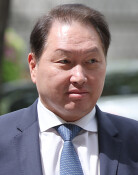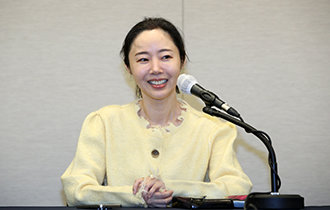Judgement awaits for delayed opening of parliament
Judgement awaits for delayed opening of parliament
Posted June. 26, 2012 22:22,
With negotiations between the ruling Saenuri Party and main opposition Democratic United Party on opening the new parliament reaching the final stage, the National Assembly is expected to start work soon. The chairmen of parliamentary standing committees have been allocated as required by the main opposition party. Both sides are also set to agree on conducting a parliamentary investigation into President Lee Myung-baks retirement home and illegal civilian surveillance by the Prime Ministers Office. A hearing on the strike at broadcast network MBC is the remaining hindrance to the opening. The Democratic United Party made the hearing a precondition for the opening, but the ruling party is insisting on opening the National Assembly first.
Most Koreans have little interest in what caused the strike and its progress. If parliament fails to be opened by Thursday, four justice posts on the Supreme Court will remain vacant and a person`s basic right to stand trial will be violated. As a seat on the Constitutional Court bench is still open, the court is postponing making decisions on cases in which judges are split in their opinions. Bills on helping the peoples livelihood await parliamentary deliberation as well. Despite this, the main opposition party insists on holding a hearing on the MBC strike.
Nearly a month has passed since the start of the 19th National Assembly`s term and three weeks since the legal opening date of the Assembly. Since the 13th National Assembly, in which negotiations on the organization of parliament began, the delay in the legislature`s opening has continuously been repeated. This bad habit and practice is never seen in any other country. If the National Assembly opens, lawmakers should first come up with a definite measure to prevent a repeat of this bad habit.
The Korean Bar Association will file a lawsuit to get lawmakers to return their salaries to hold them accountable for the delay in parliament`s opening. The group will also sue lawmakers with the Constitutional Court to force them to open the Assembly and pursue a law to unseat lawmakers if they fail to organize the National Assembly by a set date. Ruling party lawmakers returned their salaries for this month over the delayed opening to follow the principle of "no work, no pay." Lawmakers of the main opposition party should also do the same.
Even if the National Assembly is opened, it is unlikely to operate smoothly due to the December presidential election. Parliament will likely be exploited for the presidential race. In particular, it will not fulfill its unique role should opposition parties frequently conduct parliamentary investigations and hearings under the pretense of judging the government. The legislature is supposed to represent the people, not the ruling and opposition parties. If lawmakers of both parties protect their political interests in the National Assembly, the people will judge them in the presidential election.







